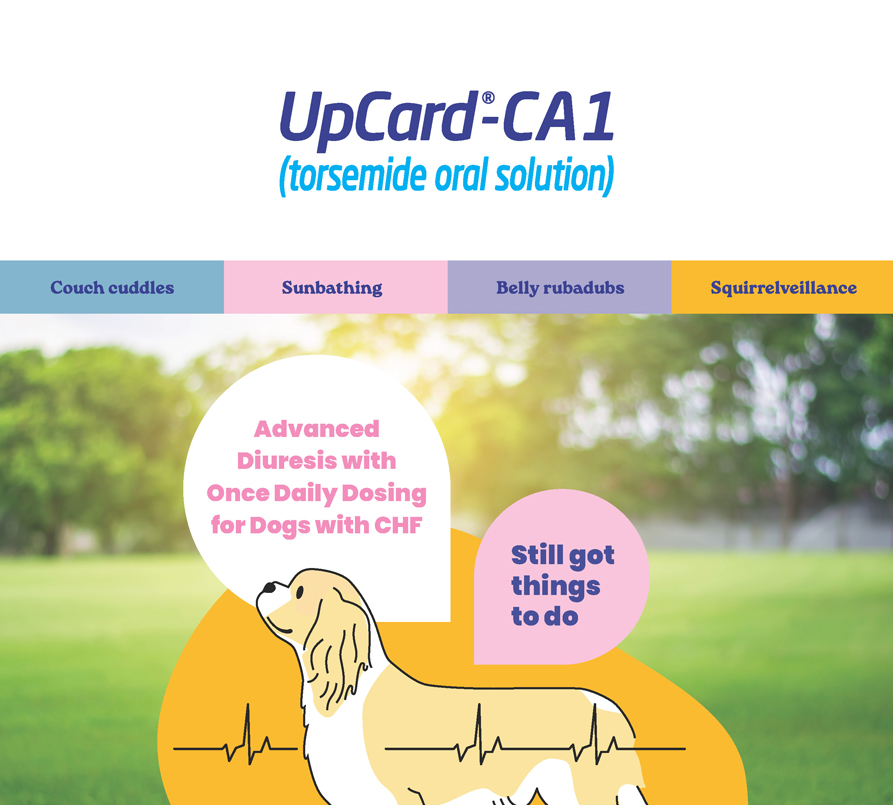Innovative new option for managing CHF.
UpCard-CA1 contains torsemide and is a potent loop diuretic conditionally approved by the FDA for the management of pulmonary edema in dogs with congestive heart failure (CHF) caused by myxomatous mitral valve disease (MMVD).1
Potent diuresis
Studies show torsemide is associated with a two-fold reduction in risk of reaching cardiac endpoint vs. furosemide and higher success rates (96% vs. 81%).1,2
Once daily dosing
The 8-hour half-life and 12-hour duration of action of torsemide allows for convenient once daily administration, improving owner compliance.2,3
Easy titration
The oral solution allows for precise and consistent dosing compared to splitting tablets.
Structurally different
Torsemide has a longer half-life, higher bioavailability, greater potency, and longer duration of action compared to furosemide.3

To see study data, including safety information, download detailer.
Prescribe confidently.
Torsemide (also known as torasemide) tablets have been approved for use as a veterinary diuretic in the European Union (EU) since 2015.
UpCard-CA1 is conditionally approved by the FDA pending a full demonstration of effectiveness under application number 141-577. It is a violation of Federal law to use this product other than as directed in the labeling.
IMPORTANT SAFETY INFORMATION: UpCard-CA1 is for use in dogs only. Do not administer to dogs with renal failure, anuria, severe dehydration, hypovolemia, or hypotension. Do not administer UpCard-CA1 concomitantly with other loop diuretics or to dogs with hypersensitivity to the active substance, torsemide, or to any of the excipients. UpCard-CA1 should be used only in stable dogs with congestive heart failure caused by MMVD which has been diagnosed by means of a comprehensive physical and cardiac examination. This drug has not been evaluated in dogs used for breeding, pregnant, or lactating bitches. The most common side effects seen in dogs with CHF due to MMVD while taking UpCard-CA1 are cough, dyspnea, pulmonary edema, and cardiac arrest. Adverse reactions not related to disease progression in dogs receiving UpCard-CA1 include polyuria and polydipsia, renal insufficiency, increased BUN and serum creatinine, urinary incontinence, hypokalemia, hypochloremia, hypercalcemia, hypomagnesemia, diarrhea, vomiting, and inappetence. For full prescribing information, visit vetoquinolusa.com/upcard-ca1-info.
References
1UpCard-CA1 Freedom of Information summary.
2Chetboul V, et al. Short-Term Efficacy and Safety of Torasemide and Furosemide in 366 Dogs with Degenerative Mitral Valve Disease: The TEST Study. J Vet Intern Med. 2017;31(6):1629–1642.
3Besche B, et al. Efficacy of oral torasemide in dogs with degenerative mitral valve disease and new onset congestive heart failure: The CARPODIEM study. J Vet Intern Med. 2020;34(5):1746–1758.
